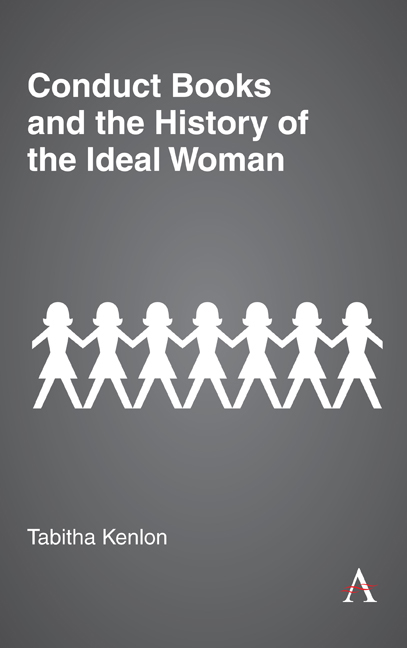Book contents
- Frontmatter
- Contents
- Acknowledgments
- Explanatory Note
- Introduction: Woman as She Should Be
- 1 A Good Woman Is a Godly Woman, Obviously
- 2 Conduct for Those Who Are Not Queen
- 3 Look but Don’t Talk: Reflections of the Ideal
- 4 Playing the Part as Nature Intended
- 5 Victoria’s Angels
- 6 Suffrage, Little Wives and Career Girls
- 7 Feminism Changes Everything, Right? Right??
- Coda: An Ideal End
- References
- Index
3 - Look but Don’t Talk: Reflections of the Ideal
Published online by Cambridge University Press: 30 April 2020
- Frontmatter
- Contents
- Acknowledgments
- Explanatory Note
- Introduction: Woman as She Should Be
- 1 A Good Woman Is a Godly Woman, Obviously
- 2 Conduct for Those Who Are Not Queen
- 3 Look but Don’t Talk: Reflections of the Ideal
- 4 Playing the Part as Nature Intended
- 5 Victoria’s Angels
- 6 Suffrage, Little Wives and Career Girls
- 7 Feminism Changes Everything, Right? Right??
- Coda: An Ideal End
- References
- Index
Summary
Mirror, Mirror— Who's the Quietest of Them All?
Mirrors are supposed to be neutral. Unless they’re in a fairy tale, they simply show what or whom is before them. Yet conduct manual writers seem to believe that mirrors are highly individual and that every group of people, from the most pious to the most dissolute, requires its own looking glass in which to gaze and ponder. In the seventeenth century, books provided looking glasses for the kingdom, traitors, the times, religious princes, the members of the Bank of England, lascivious young men, drunkards, “a lewd liver,” impeni¬tent sinners, the unmarried, a Christian family, children, “new converts to whatsoever perswasion” [sic], England, London, misers, persecutors, justices of the peace, young academics, merchants, “saints and sinners,” Catholics, Quakers, Jews, Episcopalians, Protestants, “the wise and foolish, the godly & ungodly,” Venus, bad husbands, maids, married women, shrews, wanton women and women or ladies in general. The list, which is only partial, already omits almost no one from the exercise of introspection and awareness.
Throughout the tumultuous seventeenth century, self- study might have been the only safe activity. Queen Elizabeth died in 1603 and was succeeded by King James I of England and VI of Scotland, to be followed by Charles I, civil wars, regicide, an interregnum, the restoration of the monarchy, a subsequent king's retreat into exile and an almost peaceful transition of power to William of Orange, who, though married to King James II's daughter Mary, had a tenuous claim to the throne— particularly since his father- in- law was still alive. Religion and politics remained intertwined, but allegiances, as always, could change without warning. Amid such uncertainty, it is little wonder that writers of advice litera¬ture often recommend that women think, but stay silent. Speech, traditionally discouraged for women anyway, was a matter of public concern for both sexes. Perhaps it was safest to focus one's attention inward, on oneself.
While not all conduct manuals include references to looking glasses or mirrors in their titles, most of them do participate in the idea of informed self- awareness. This is a relatively new line of reasoning. Conduct manuals of previous centuries had been, for the most part, pure instruction.
- Type
- Chapter
- Information
- Conduct Books and the History of the Ideal Woman , pp. 61 - 80Publisher: Anthem PressPrint publication year: 2020



